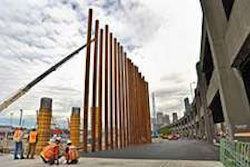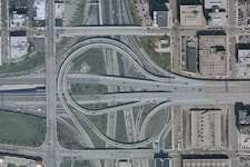For the second time in three months, Congress is considering a bill that would increase the number of Interstate facilities that could toll and remove the limit on how many states can have Value Pricing Pilot Programs.
Illinois Republicans introduced the bills, both titled the Lincoln Legacy Infrastructure Development Act, which were referred to committees with no co-sponsors. The legislation is to encourage private-public transportation partnerships to fix federal transportation shortfalls.
On Sept. 20, Rep. Randy Hultgren introduced H.R. 2971, which was preceded by S.1300, introduced by Sen. Mark Kirk on June 29.
A 1998 law created the Interstate System Reconstruction and Rehabilitation Pilot Program, which allows the Federal Highway Administration to approve tolling at up to three existing Interstate facilities if reconstruction otherwise could not be adequately maintained or improved without tolls. Each of the facilities, which can be highways, bridges or tunnels, must be in a different state.
On Sept. 14, the FHWA granted conditional provisional approval to toll Virginia’s I-95 and seven years earlier, gave Missouri approval to toll I-70. Last year, the agency rejected Pennsylvania’s request to toll I-80.

The bills also would remove the limit on how many Value Pricing Pilot programs, which use highway congestion management strategies, the agency could allow nationally. The VPP is a separate entity from ISRRP and permits tolling, but also non-tolling means, which can be mileage-based charges for insurance, taxes, and leasing fees.
Current law allows the FHWA to approve VPP agreements with a maximum of 15 states and each state can have an unlimited number of VPP programs. Fourteen states now have a VPP program, which provides funding to support studies and implementation.








